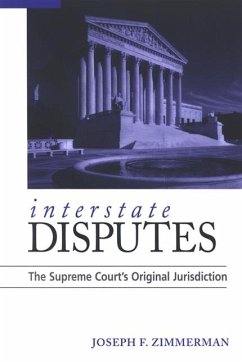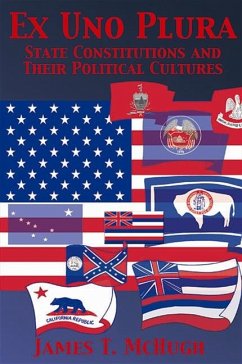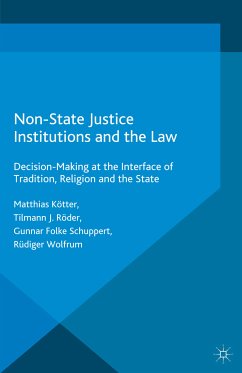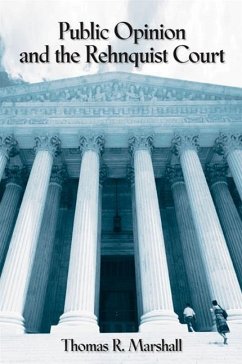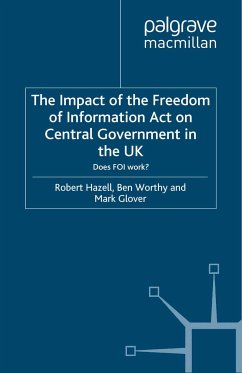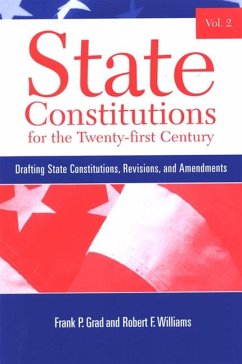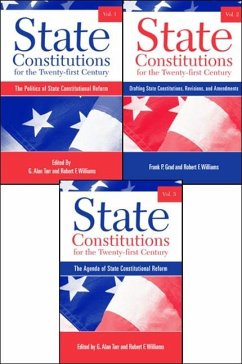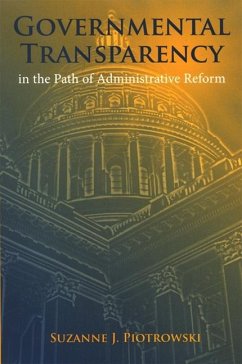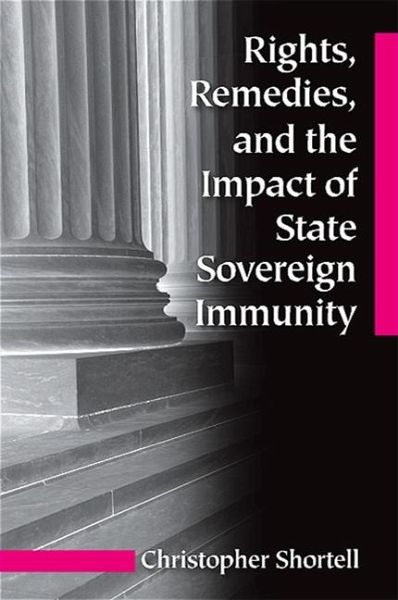
Rights, Remedies, and the Impact of State Sovereign Immunity (eBook, PDF)

PAYBACK Punkte
13 °P sammeln!
Engaging case studies on the impact of state sovereign immunity on both plaintiffs and states.The Supreme Court's recent spate of state sovereign immunity rulings have protected states from lawsuits based on federal legislation as diverse as disabilities law, age discrimination, patent and trademark law, and labor standards. But does the doctrine of state sovereign immunity increase state authority? Does it undermine federal antidiscrimination statutes? Is it an effective means to revive a more robust version of federalism, shifting the balance of power toward states and away from the federal ...
Engaging case studies on the impact of state sovereign immunity on both plaintiffs and states.
The Supreme Court's recent spate of state sovereign immunity rulings have protected states from lawsuits based on federal legislation as diverse as disabilities law, age discrimination, patent and trademark law, and labor standards. But does the doctrine of state sovereign immunity increase state authority? Does it undermine federal antidiscrimination statutes? Is it an effective means to revive a more robust version of federalism, shifting the balance of power toward states and away from the federal government, and if so, what are the costs and implications of such an approach? This book explores these questions through engaging historical case studies and traces the impact of state sovereign immunity on both plaintiffs and states. Demonstrating that the doctrine's primary effect is felt most keenly by the weakest and most politically unpopular individuals, Christopher Shortell's findings challenge arguments from both proponents and opponents of state sovereign immunity.
The Supreme Court's recent spate of state sovereign immunity rulings have protected states from lawsuits based on federal legislation as diverse as disabilities law, age discrimination, patent and trademark law, and labor standards. But does the doctrine of state sovereign immunity increase state authority? Does it undermine federal antidiscrimination statutes? Is it an effective means to revive a more robust version of federalism, shifting the balance of power toward states and away from the federal government, and if so, what are the costs and implications of such an approach? This book explores these questions through engaging historical case studies and traces the impact of state sovereign immunity on both plaintiffs and states. Demonstrating that the doctrine's primary effect is felt most keenly by the weakest and most politically unpopular individuals, Christopher Shortell's findings challenge arguments from both proponents and opponents of state sovereign immunity.
Dieser Download kann aus rechtlichen Gründen nur mit Rechnungsadresse in A, D ausgeliefert werden.




